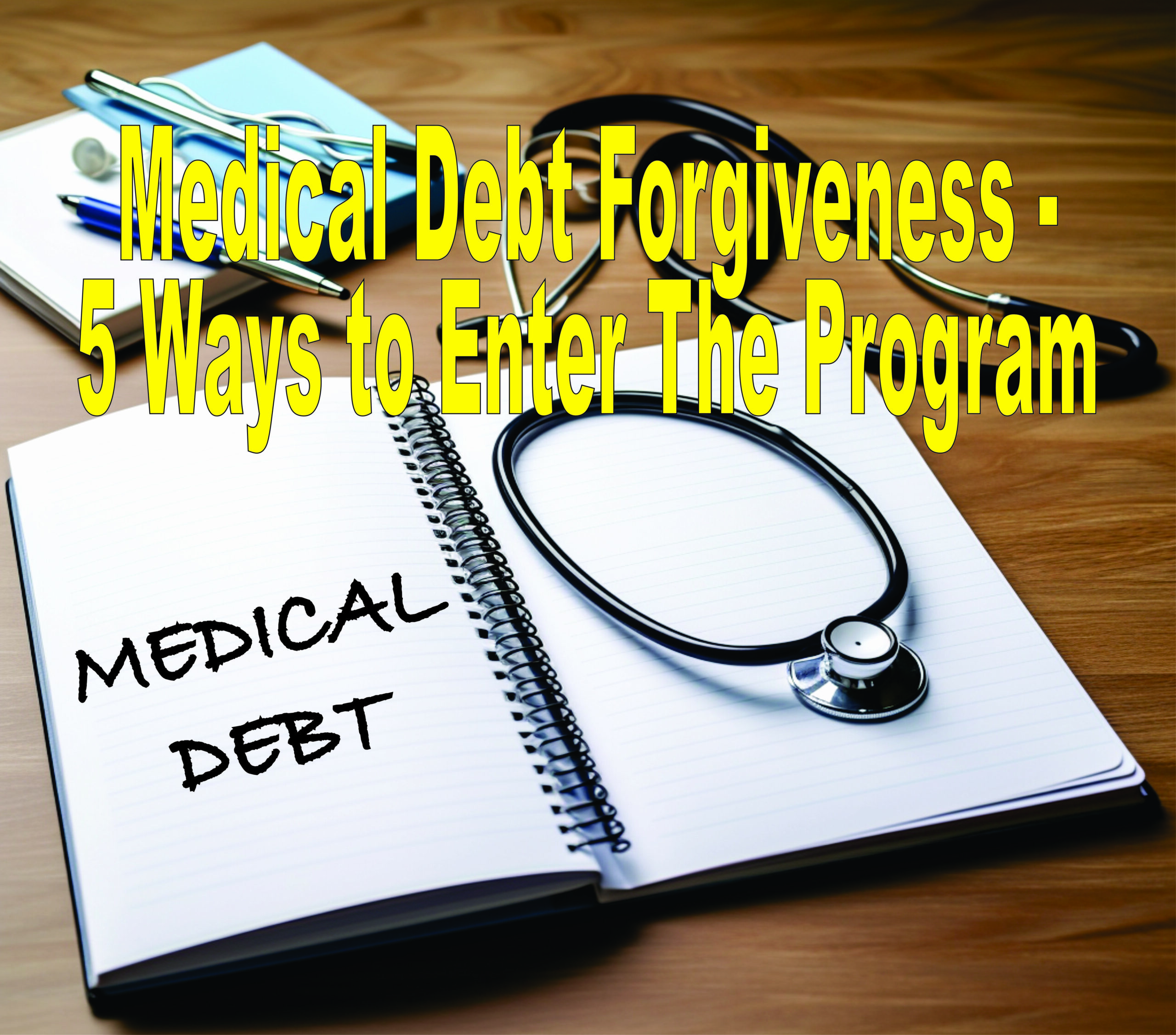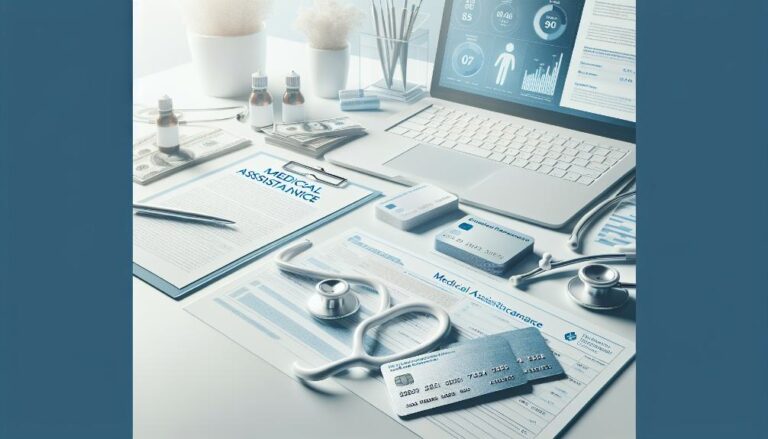Medical Debt Forgiveness – 5 Ways to Enter The Program

Last Updated on November 9, 2023 by Lori Pace
Your life will be changed by a health crisis. High medical bills are a result of modern technology and new treatments. There are 5 ways to ask for Medical Debt Forgiveness. Many times, this programs can forgive or discharge a portion or all of the medical bills.
What is Medical Debt Forgiveness Programs?
Medical bill debt forgiveness is the process of paying off medical bills by asking the appropriate authority or seeking assistance from third-party organizations.
A study found that over 137 million Americans had faced financial difficulties in paying their medical bills. However, there are many ways to reduce medical debt.
Either request a flat rate discount from the hospital authority, or you can choose to go for the repayment plan. Let’s look at the various ways to reduce medical debt.
Best Ways to Ask for a Medical Bill Forgiveness
High medical bills can have a negative effect on our daily lives. And, you are not the only one who is paying high hospital bills after undergoing a particular treatment or surgery. A recent study found that 26% of Americans have difficulty paying their medical bills. As a result, they also seek to get medical bill forgiveness.
To run their businesses properly, hospitals will have to collect medical bills. Then, they offer different payment options for those who cannot afford to pay their medical bills. In a nutshell, there are five main ways that a hospital could suggest to patients to avoid high medical bills.
- Direct Discounts on the Generated Medical Bills
- Financial Assistance to Unsecured Person
- Payment Plans with low or no interest
- Seek help from NGOs
- Filing for Bankruptcy
1. Ask for Financial Assistance Policy from the Hospital
Asking the hospital whether the patient qualifies for financial assistance is the best way to reduce your medical bills.
The Financial Assistance Policy, also known as Charity Care, is a policy that provides financial assistance to patients who are financially vulnerable. But, notice that you may be asked to provide income proof or other documents by the authority to verify that you are covered under the charity care program.
As a result, the hospital might reduce your medical bills by half, or even forgo the entire bill depending on your income.
2. Ask for Discounts
Asking for a discount is another way to lower or forgive hospital bills. Ask for a flat discount on all medicines you purchase from the hospital’s pharmacies. To reduce your final medical bill, you can mention the name of a person you know who is in the hospital.
3. Don’t Pay by Credit Card – Discuss Payment Options with Hospital First
In many case, people put their medical debts on credit cards that charge more. However, if you pay your medical bills through Credit Card, hospitals won’t be able to change the final price. Instead, talk to the hospital’s concerned authority about the payment options.
Medical debt can be set up at lower interest rates through the hospital’s financial aid programs. So, in paying your medical bills, it is always a good idea to use the hospital-backed program of medical assistance.
4. Seek Help from NGOs
Qualified applicants can receive financial assistance from many NGOs to forgive medical debt. In short, these NGOs work in partnership with hospitals to help patients settle their medical bills.
Through the hospital’s Charity Care Program, NGOs pay the amount pending. That is why families with low incomes can get help from NGOs who have good relationships with hospitals.
These organizations can offer financial assistance directly to families in need to pay off medical bills. Obtain referrals from the Finance Department of the Hospital to learn more about available charities and NGOs that can help pay your medical bills.
5. Filing for Bankruptcy
A bankruptcy court can help you pay off your medical debt. To forgive the hospital’s pending medical debt, one can file bankruptcy. Bankruptcy laws allow for medical bills and other expenses to be paid if the applicant is eligible under Chapter 7.
Most cases will be given by the court 3 to 5 years for the repayment of pending medical bills. In general, for low-income families, this time period is sufficient. However, this could affect your credit score over the next 10 years.
If all else fails, check to see if you are eligible for grants for medical bills that are provided by the government or charities.
Take away from Medical Debt Forgiveness Programs
For those who do not have health insurance, medical bills can be very stressful. So, for medical emergencies, it is important to have a health insurance policy or Medicaid. However, if you don’t have insurance or have low income, medical bill debt forgiveness is an excellent option. You can always count on the assistance of medical professionals to help you with any problem.
To get a flat rate on your medical bills, first discuss your financial situation with them. You can also ask for charity care if the bill is too high. You have many options to help pay your medical bills. To get your medical bills completely forgiven, you must show proof of low income to NGOs or Hospitals.
They will then decide if they want to discount the medical bill or forgo the entire bill. Grants for medical bills can also be available.








